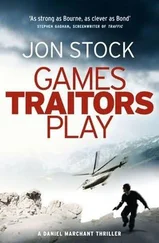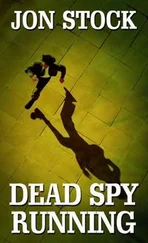The Travellers used to double up as MI6’s staff bar, in the days when the Service was situated in Century House, its drab premises in Southwark. Since the move to Legoland, with its plush second-floor bar and terrace overlooking the Thames, where people could drink outside in the summer, the Travellers had become less of a draw for junior staff. But old habits died hard for senior officers, and Fielding acknowledged a couple of familiar faces as he took his seat in the panelled library.
‘I’m offering you a deal,’ Chadwick said, swirling his Talisker around the glass. He was one of the safest pairs of hands in Whitehall, brought in at the end of a successful but unstartling career to steady the intelligence ship after the fiasco of Marchant’s departure. Evidence, Fielding concluded, that mediocrity can take you surprisingly far in big organisations like the Civil Service.
‘The Americans have agreed to drop their investigation of any meeting between Dhar and Stephen, providing they can have access to Daniel Marchant and we leave Dhar to them.’
‘Access?’
‘They want to sweat him.’
‘Why?’
‘Come on, Marcus. I know he was one of your best, but it’s bloody odd he was there at the marathon. They think he might be able to tell them something about Dhar. And, to be honest, the idea of someone taking Marchant off our hands is quite appealing. We all know he’s been drinking too much. The last thing the PM needs right now is another renegade spy on the loose.’
Fielding thought about defending Daniel Marchant again. Perhaps it was the effect of his gin and lime, but he was no longer as troubled by Chadwick’s proposal as he might have been. A part of him resented having to protect Marchant any longer, given the headache his suspension had caused. Chadwick was right: Marchant had been the most promising case officer of his generation, just the sort of young blood the Service was trying to attract. But Fielding knew, too, that his suspension was entirely because of the accusations swirling around his father. And he needed those accusations to go away: they were continuing to cause too much damage to the Service. The sooner the Americans forgot about any meeting between the former Chief and Dhar, the better for everyone.
There was only one concern, and that was the ‘enhanced’ interrogation techniques favoured by the CIA. The new President might have banned torture, but old habits die hard in Langley. Despite everything, Marchant was still one of his own, and right now he was fragile.
‘He mustn’t leave the country,’ Fielding said, finishing his gin. ‘And I want him back alive.’
Leila headed back to London that night, leaving Marchant to dwell on Fielding’s visit over a bottle of malt she had smuggled in with her. He knew he was drinking too much. The training runs with Leila, the impulsive decision to run the marathon, had been an attempt to impose some routine on his life, which had lost all shape since his father’s death. He had never been fitter than when he was working for MI6. The drinking dulled the pain of loss, but it also dragged him back to another life, to dissolute, carefree days at the Nairobi Press Club.
The first weeks of his suspension had been the toughest. In his sober hours, Marchant had thought only of the mole who had supposedly penetrated MI6. It was his way of grieving, channelling his anger. Rising at dawn, head bursting, he had paced the empty streets of Pimlico, holding the rumours about his father up to the early-morning light, looking at them from every possible angle. He would stand on Vauxhall Bridge, watching the barges pass below before turning to look up at Legoland and the buttressed windows of the Chief’s office. Had the whole thing been cooked up as a Machiavellian way of removing his father, or was there a genuine possibility that Al Qaeda had infiltrated MI6?
The terms of his suspension meant that he wasn’t allowed to step inside Legoland, or to talk with colleagues about work, or to travel overseas. All his cover passports had been seized. His mornings had been spent in internet cafés around Victoria station (he didn’t trust the computer at his flat on Denbigh Street), going over each of the attacks again and again, looking for something that might link a cell based in South India to anyone in MI6, a Legoland colleague with connections to the subcontinent.
Now, at last, he had that link, but it was between his own father and Salim Dhar. Never once had it crossed Marchant’s mind that his father had brought suspicion upon himself. Fielding was right: meeting Dhar privately was an irregular thing to have done. And Marchant knew, as Leila’s whisky burnt his throat, that he too would have to meet him, wherever he was. It was the only way to clear his father’s name. He needed to ask Dhar why the Chief of MI6 had run the risk of meeting with him. The consequences of such an encounter could prove equally disastrous for him, but the reality was that he didn’t have much to lose.
As he gazed out across the Wiltshire countryside towards the woods beyond the canal, a grey heron lifted itself heavily from the water and rose into the air. His father used to say that they were like B-52s, but then he had always had a thing about bombers. During the Cuban Missile Crisis he had driven down to Fairford and watched them standing on the end of the runway, engines running, waiting for the order.
Marchant remembered the morning his father had called him with the news that he was to step down as Chief. The power and authority had gone from his voice, as if he had been using a megaphone all his life and someone had suddenly switched it off. Marchant had taken the call at Heathrow airport, on his way back from Mogadishu to London for Christmas.
‘Have you cleared immigration?’ his father had asked, almost absent-mindedly.
‘I’m waiting for a taxi. Why? Is everything all right, Dad?’
‘Take the Underground as far as Hammersmith, then a minicab from that place on Fulham Palace Road we used to use. Ask for Tarlton. They’ll know.’
‘Dad, what is this? Is everything OK?’
‘I’ve been put out to pasture. Watch yourself.’
Marchant had immediately gone on his guard again, as if in a foreign airport. He moved swiftly down to the Underground, trying to work out the implications of their conversation, for his father, for him. He knew pressure had been building in recent weeks. There had been questions in the House about the incompetence of Britain’s intelligence services, aggressive newspaper leaders about the wave of attacks and what more should have been done to prevent them.
His father paid off the minicab in cash, and insisted on taking his son’s two bags. It was a cold December day, and the apple and cherry trees at the front of the house were laced with frozen cobwebs. A thin twist of smoke rose from the chimney. The house was in effect two Cotswold cottages knocked together, surrounded by lawns and a meandering drystone wall. It was a private location, half a mile out of Tarlton, a small hamlet near Cirencester. Marchant always felt strange when he was here. The house had been the only constant in his shifting childhood, a place where they came for brief respites from foreign postings, a home he had once shared with his brother. Its Englishness was overwhelming, not just because of its Cotswold prettiness, but because it had come to represent all that he missed about home: new-mown grass, autumn bonfires, orchards. And, of course, it had always disappointed, unable to live up to childhood dreams of Albion.
‘Good of you to come,’ his father said, walking through the back door in front of Marchant. ‘Mind if we go for a drive?’
Ten minutes later, they were speeding through the cold open countryside in his 1931 Lagonda, barely able to hear each other above the roar of the two-litre engine. Frost had sharpened the hedgerows, and the road was black with hidden ice. But Stephen Marchant didn’t seem to mind, wrapped up in a thick woollen scarf and gloves. Daniel sat next to him. He had forgotten how cold a car could feel.
Читать дальше












